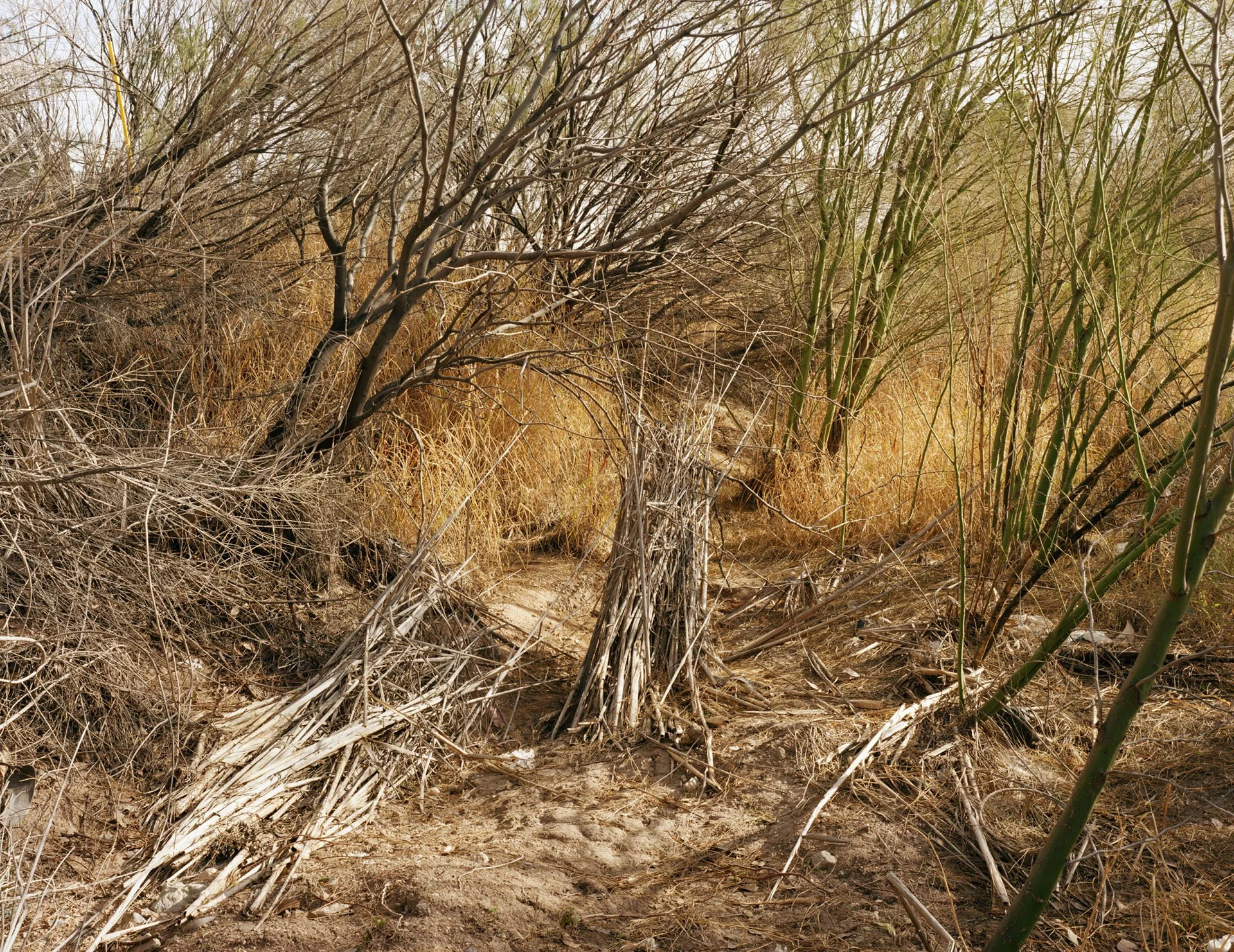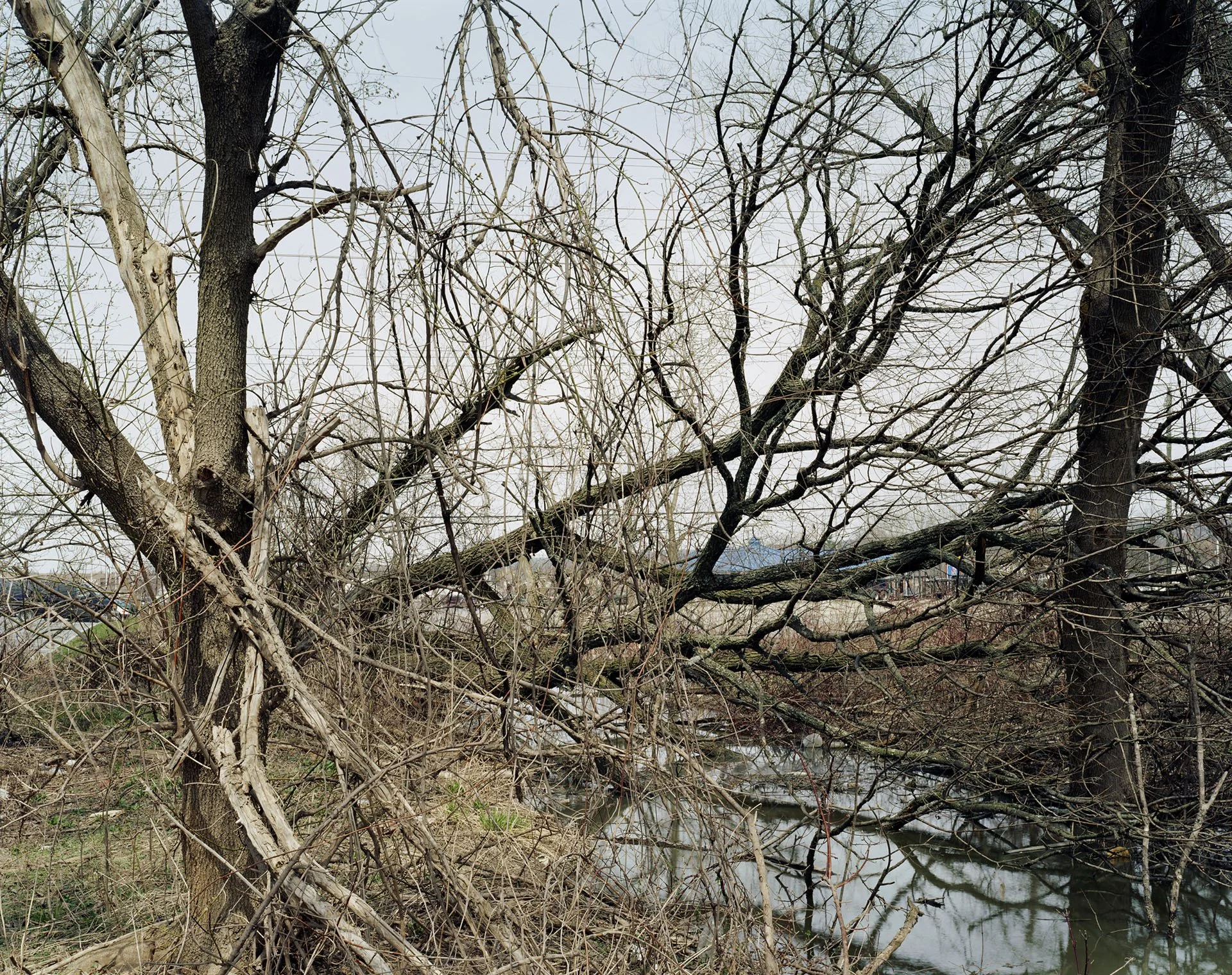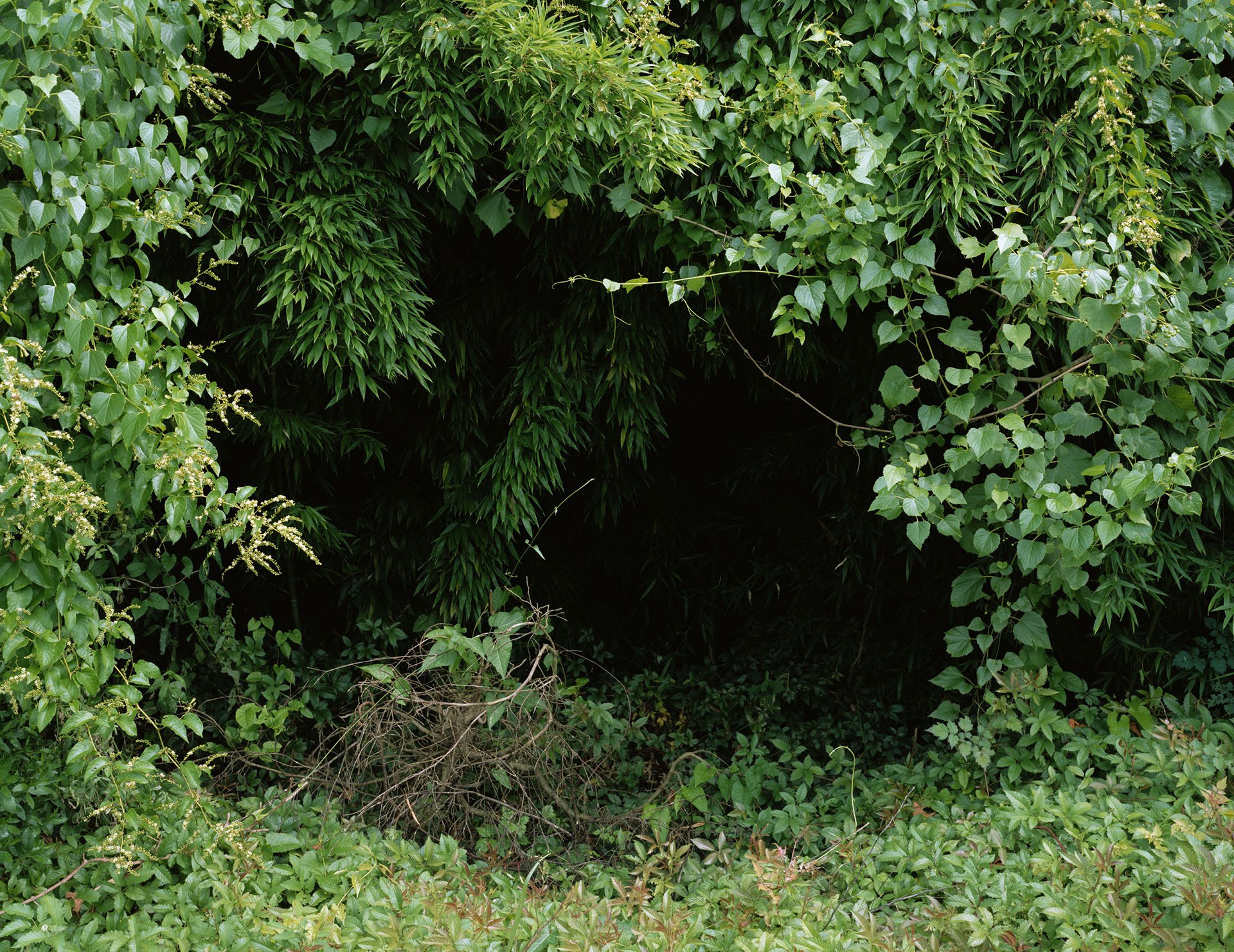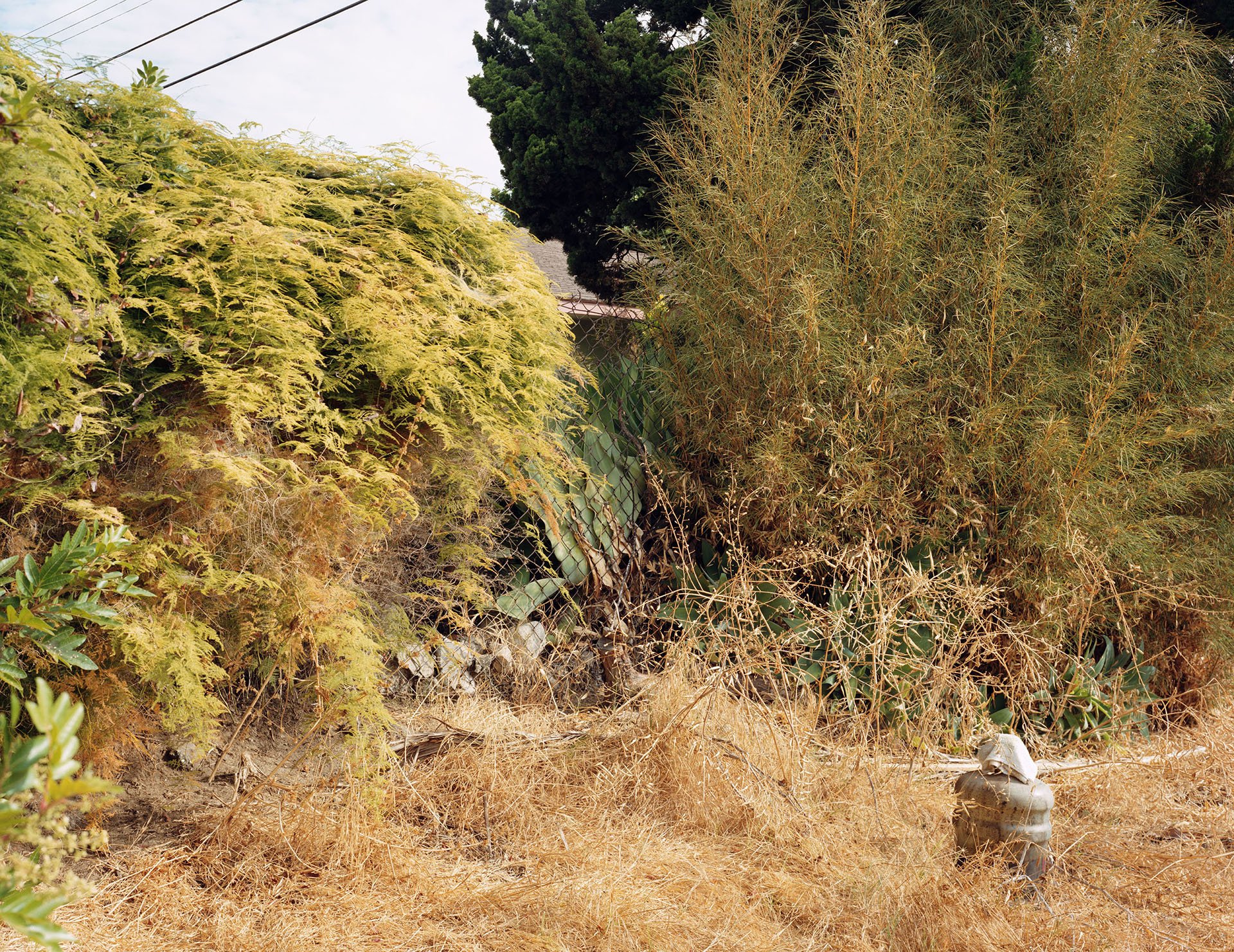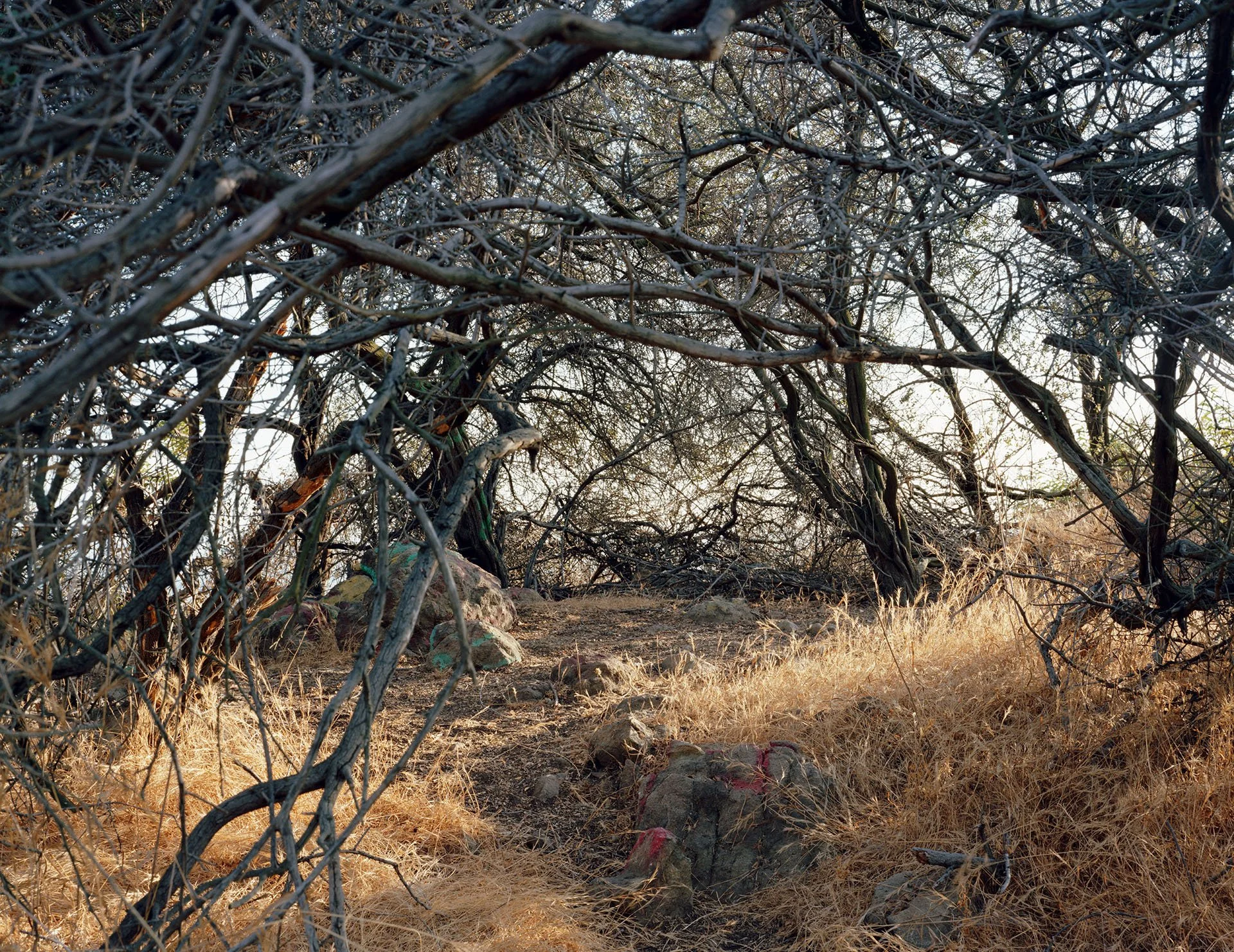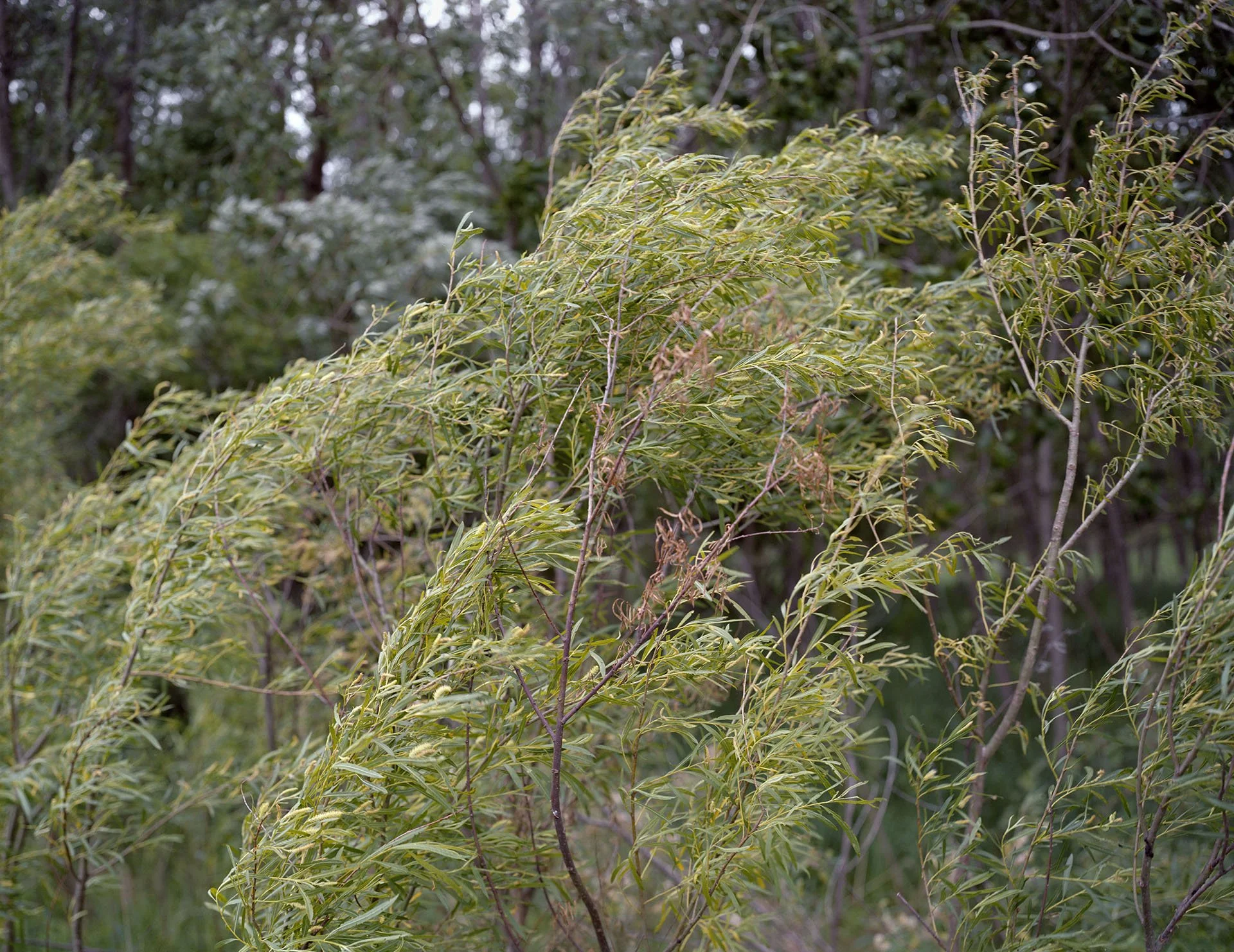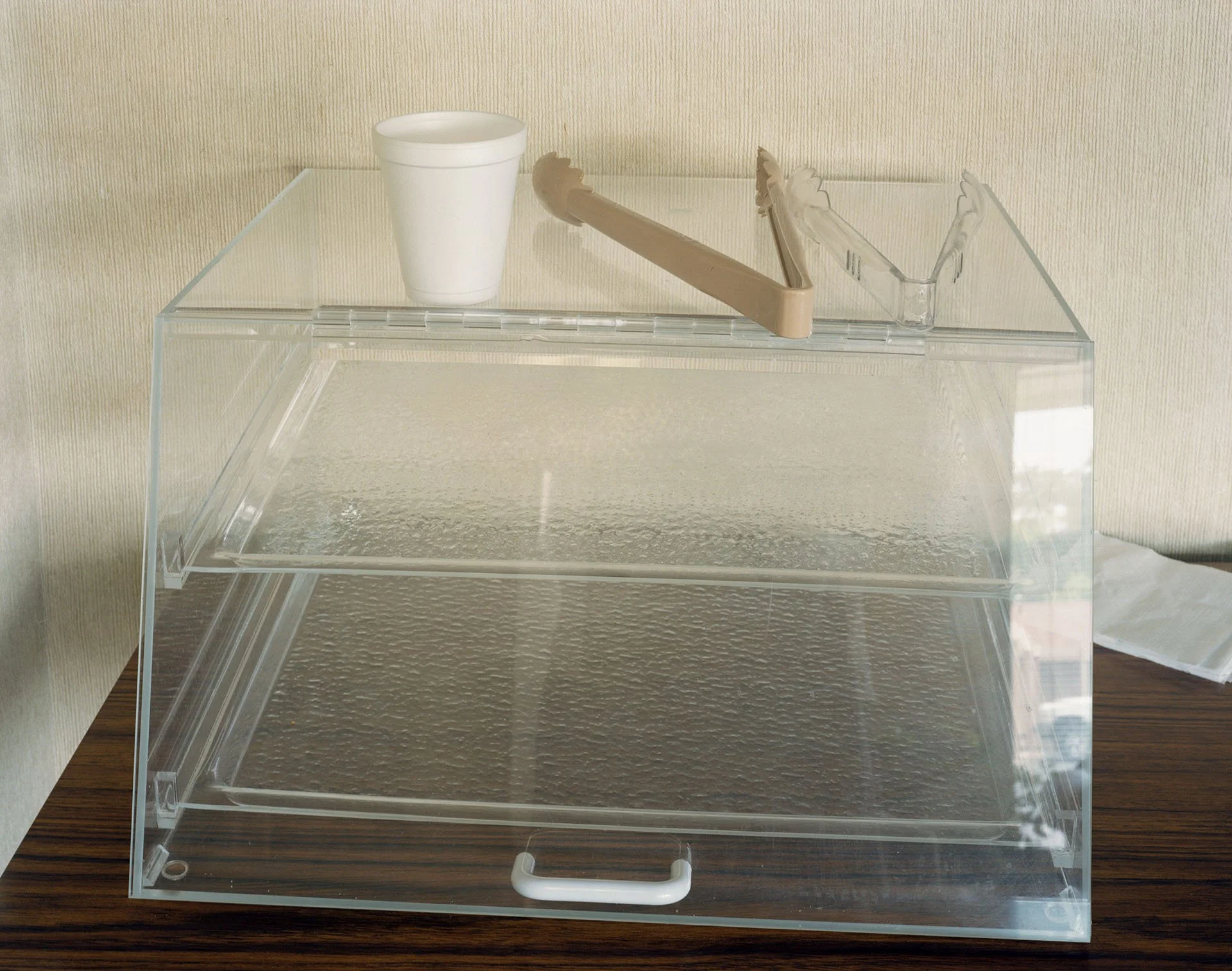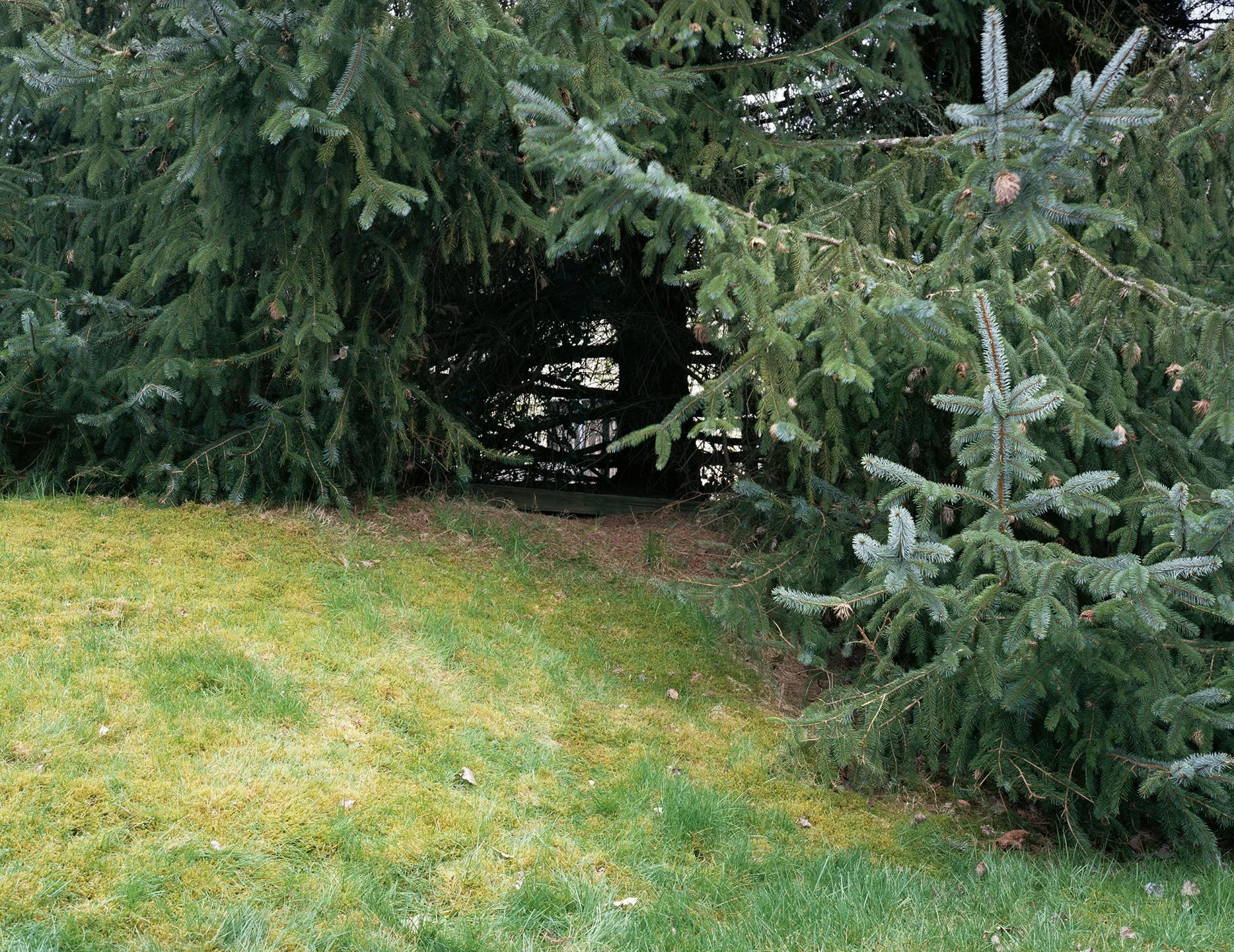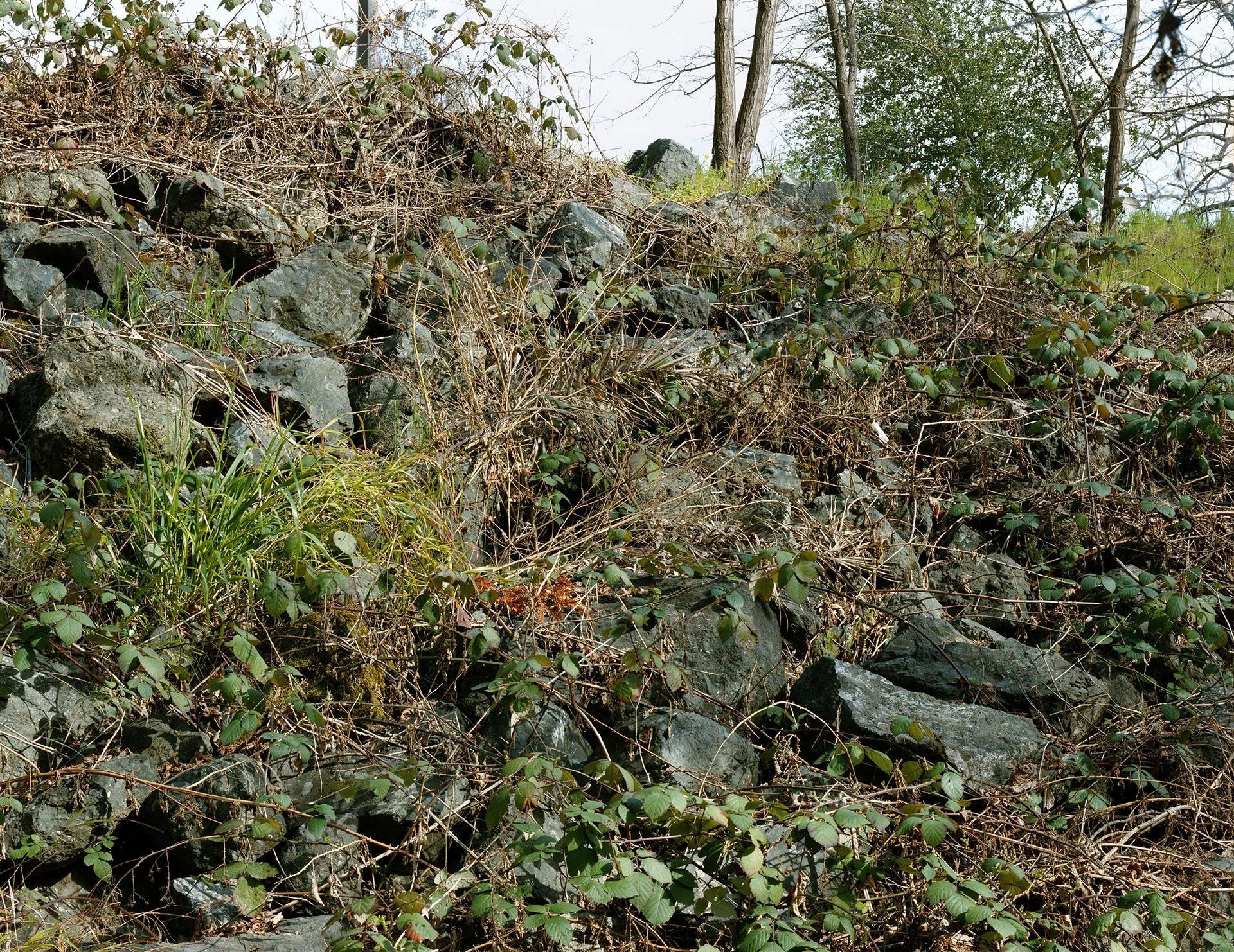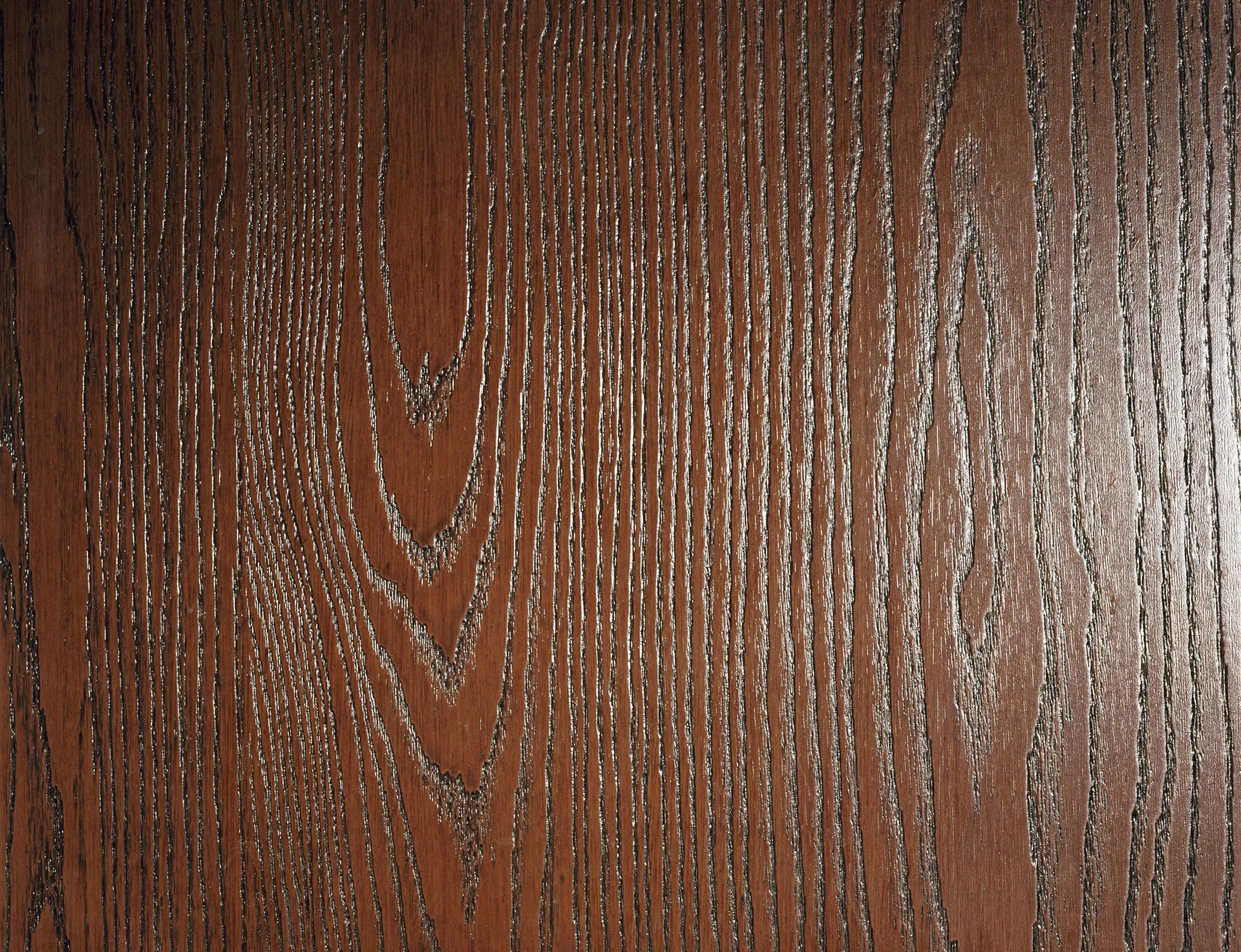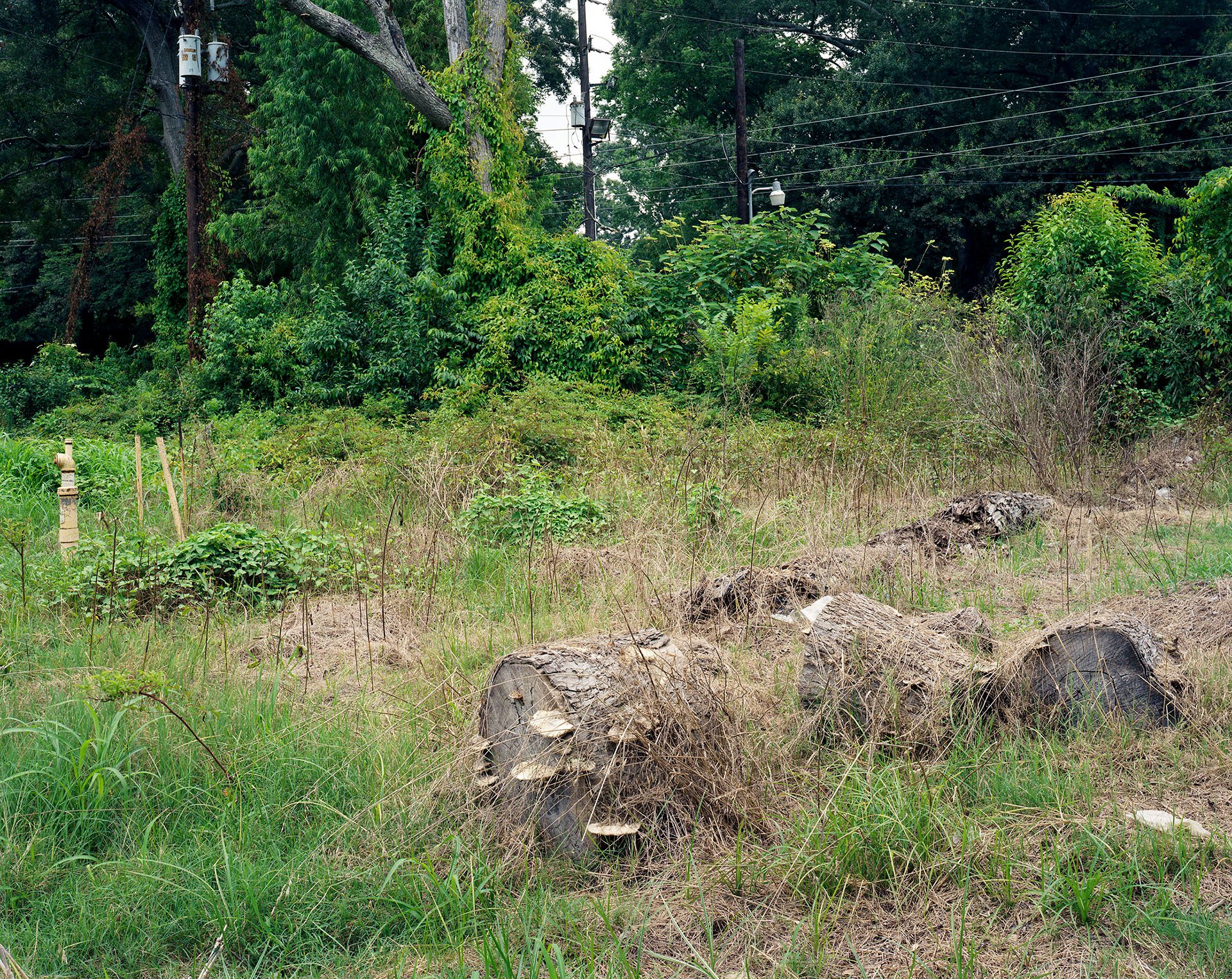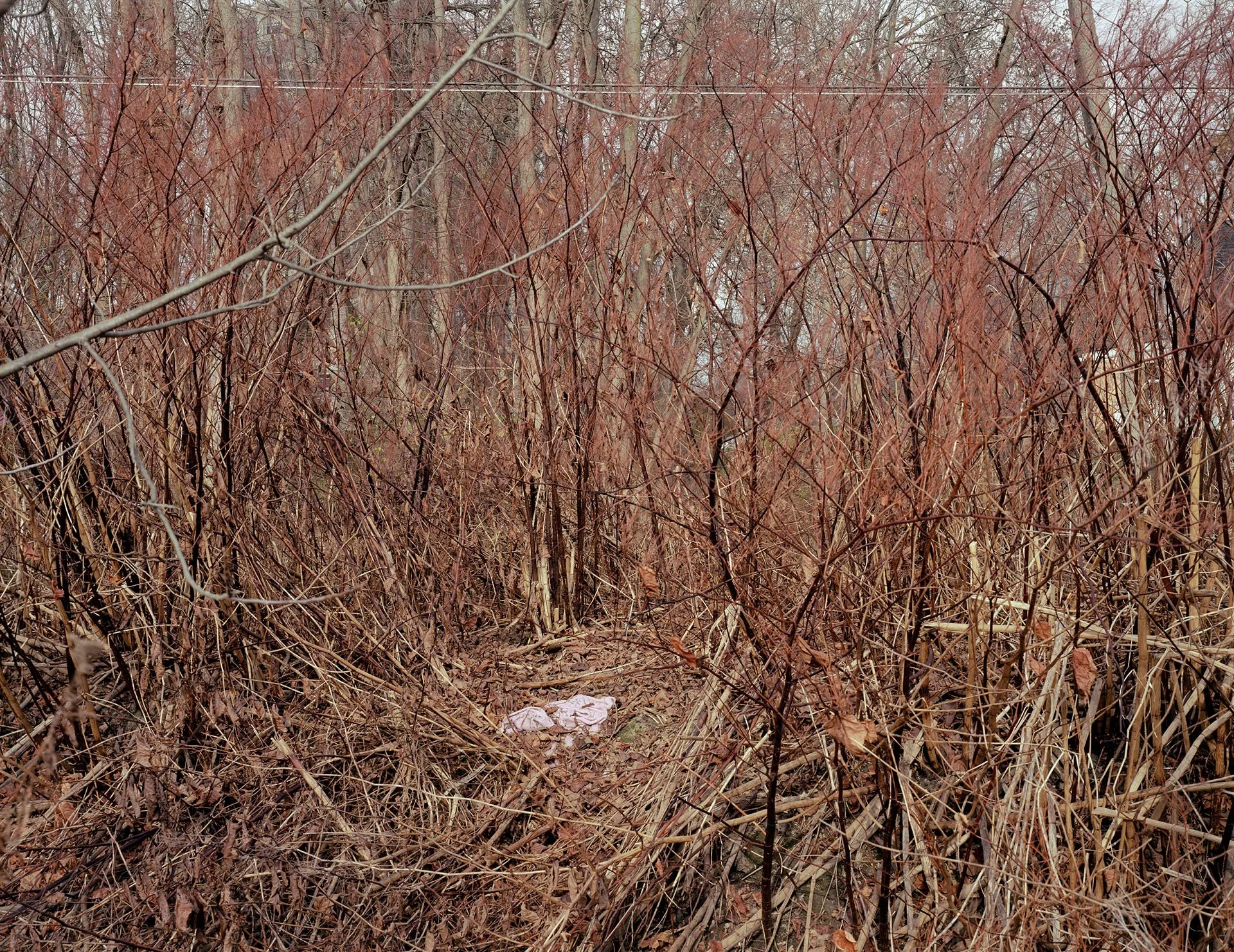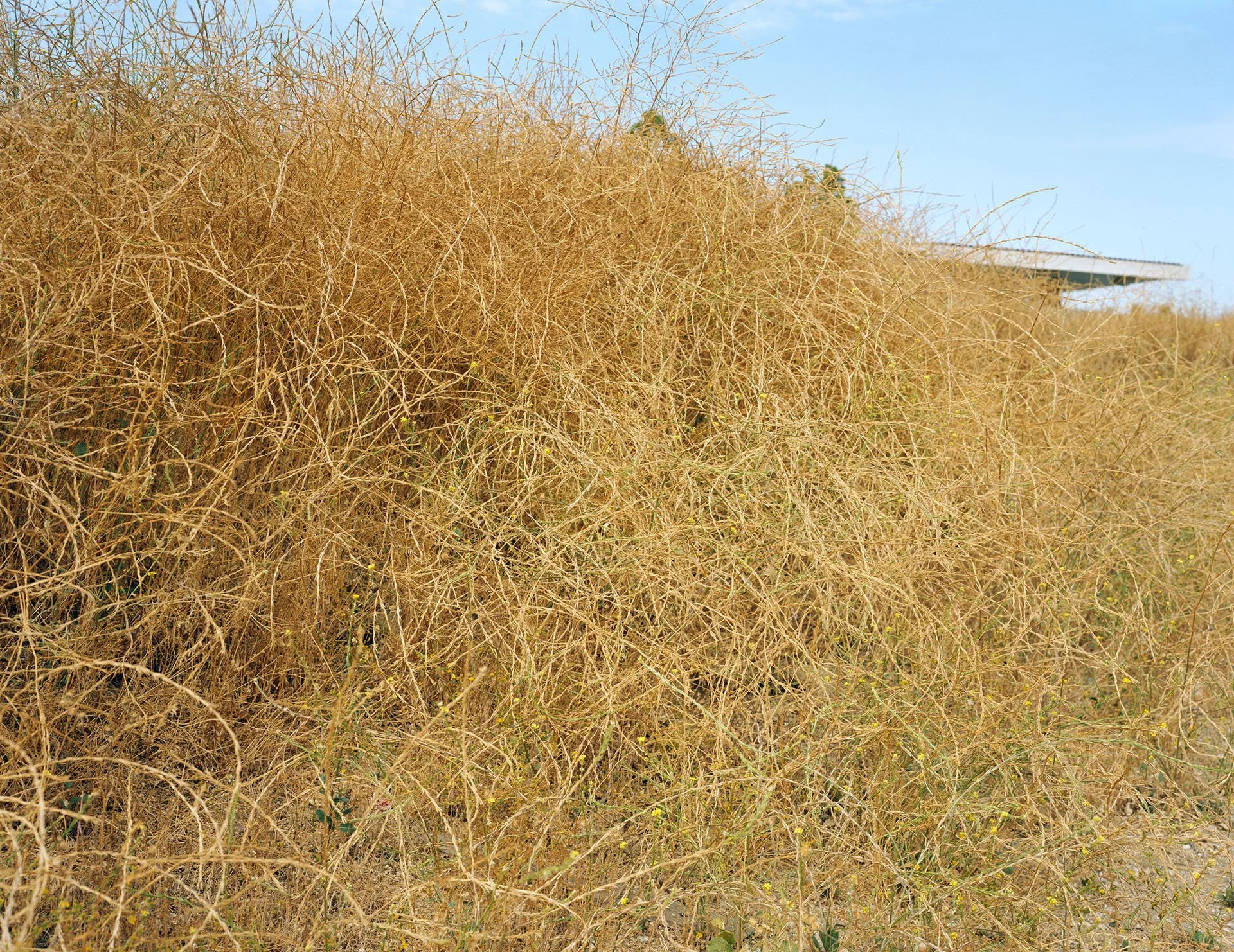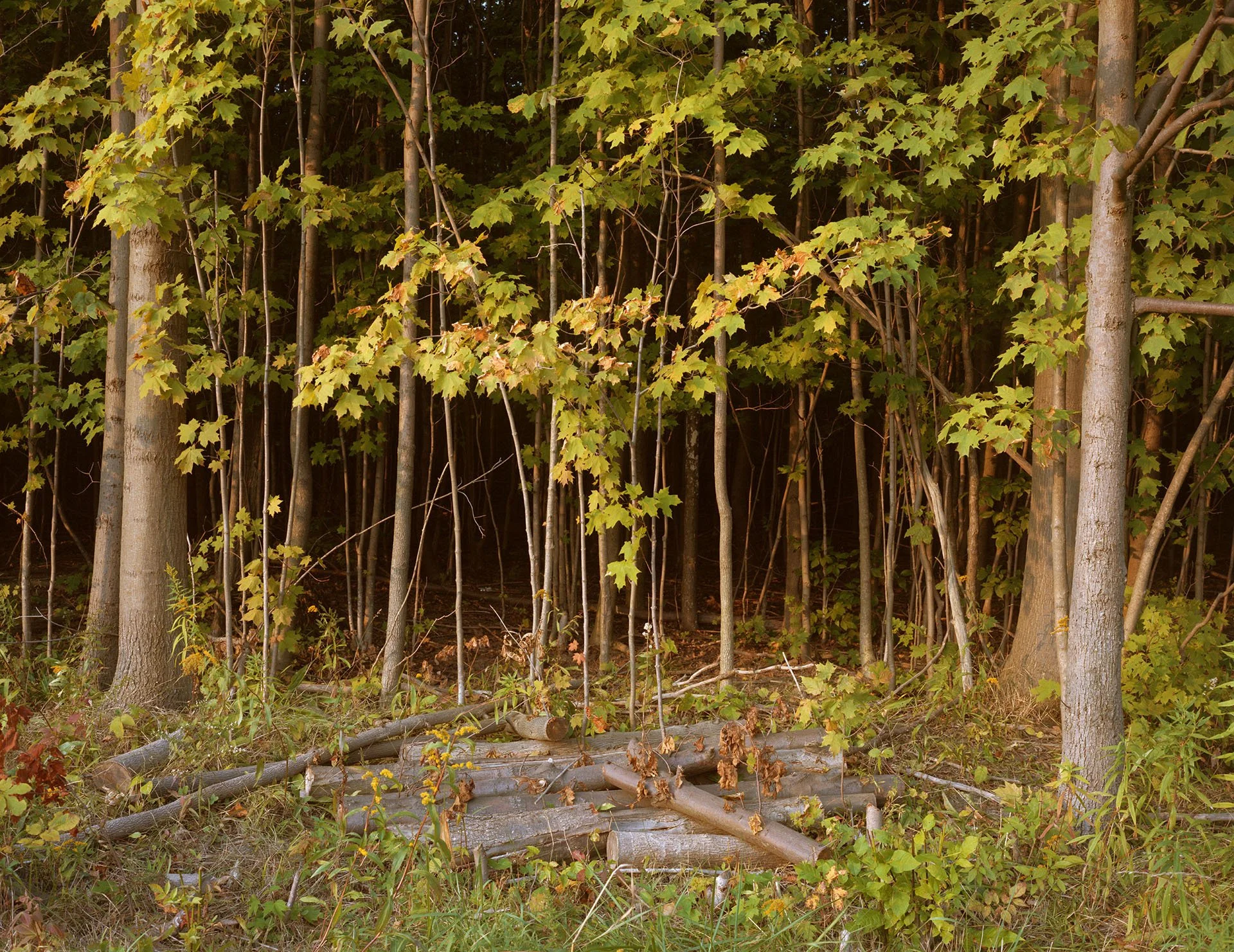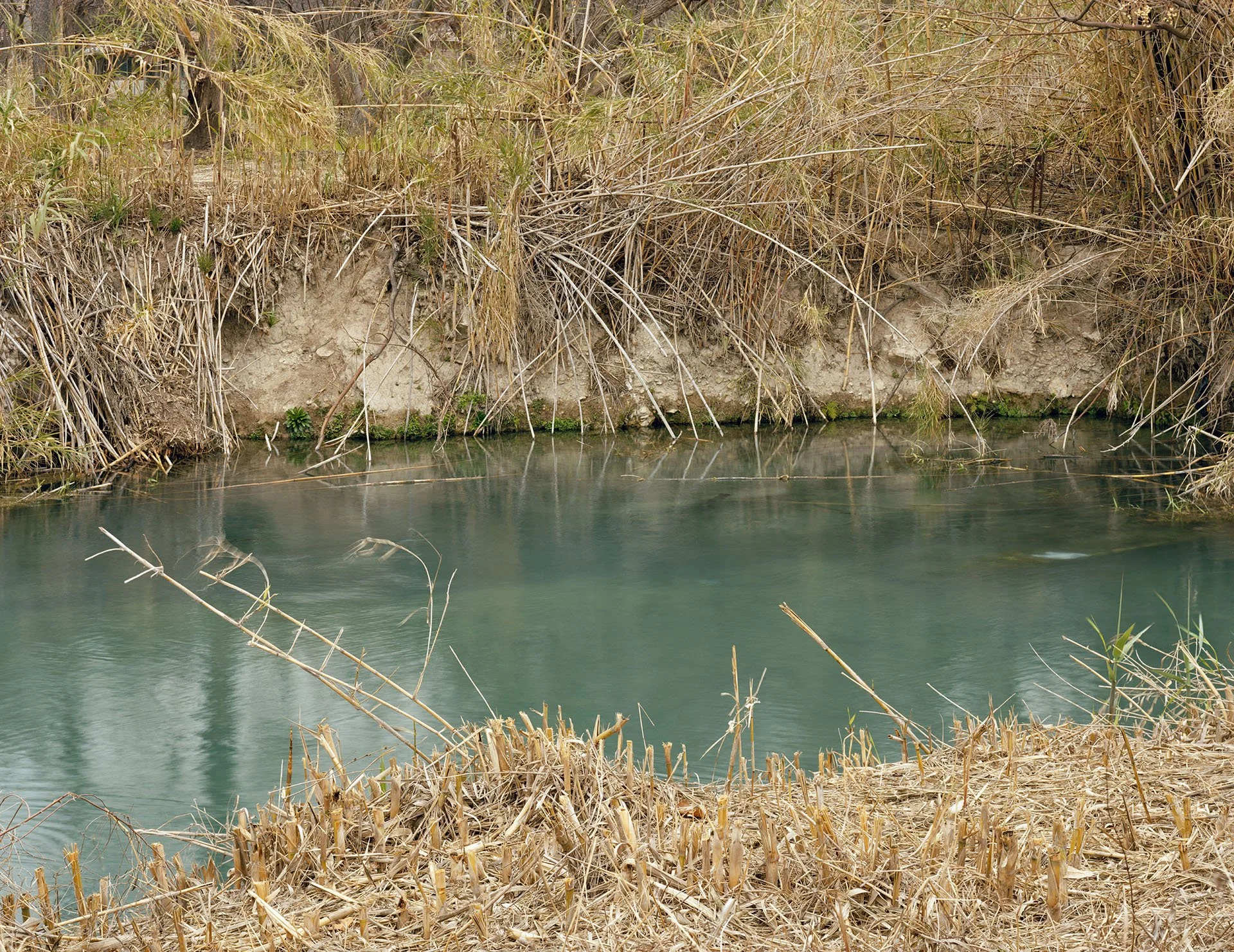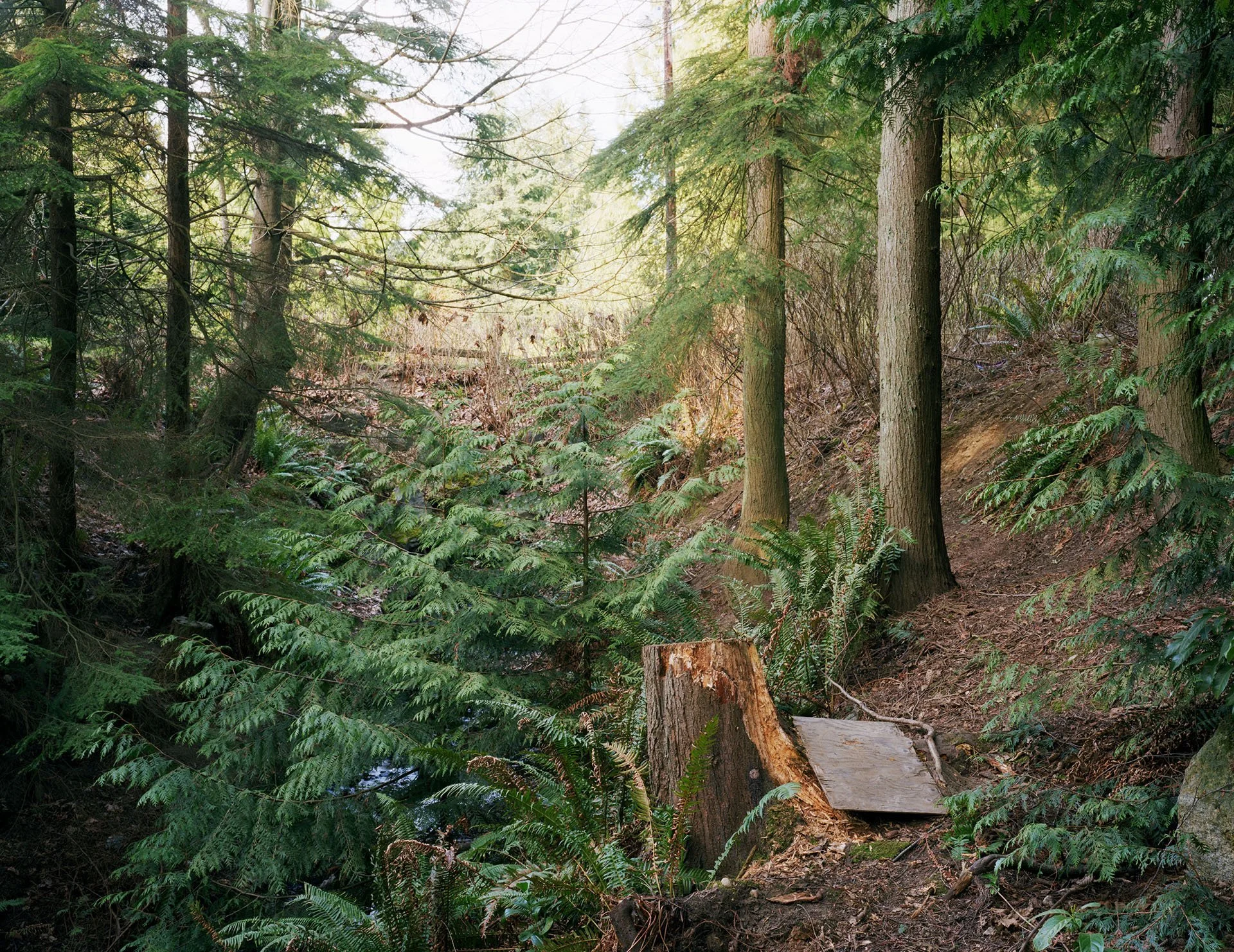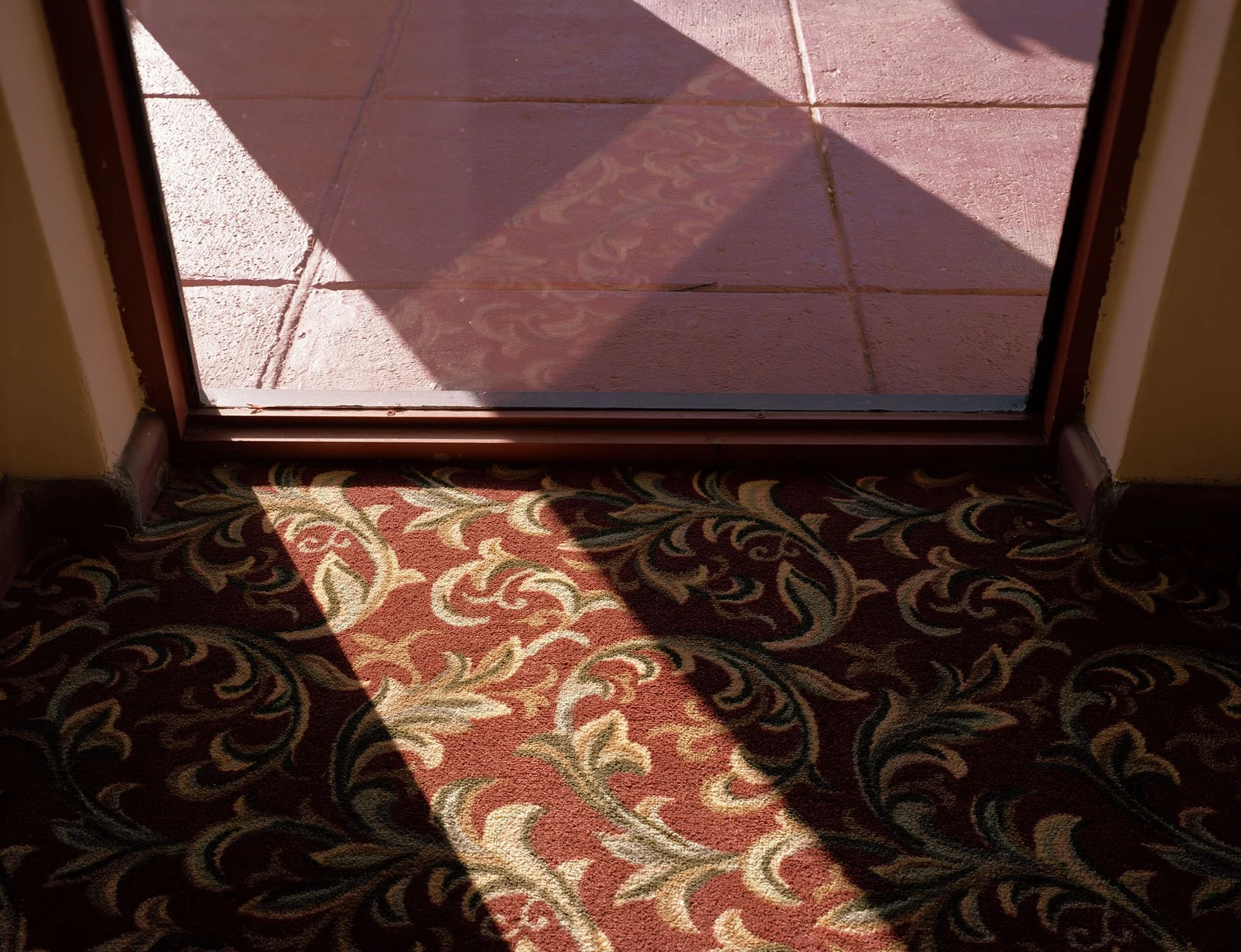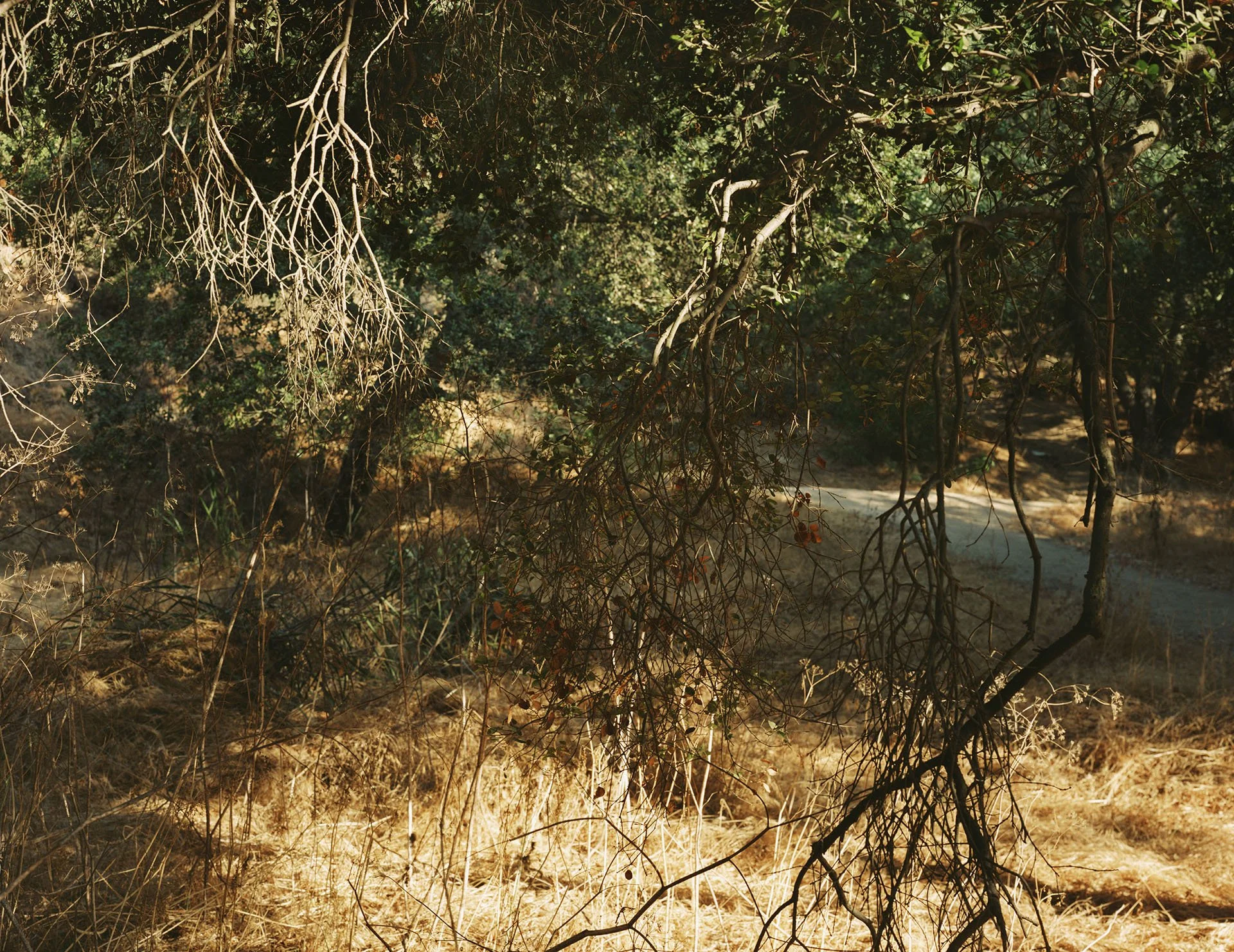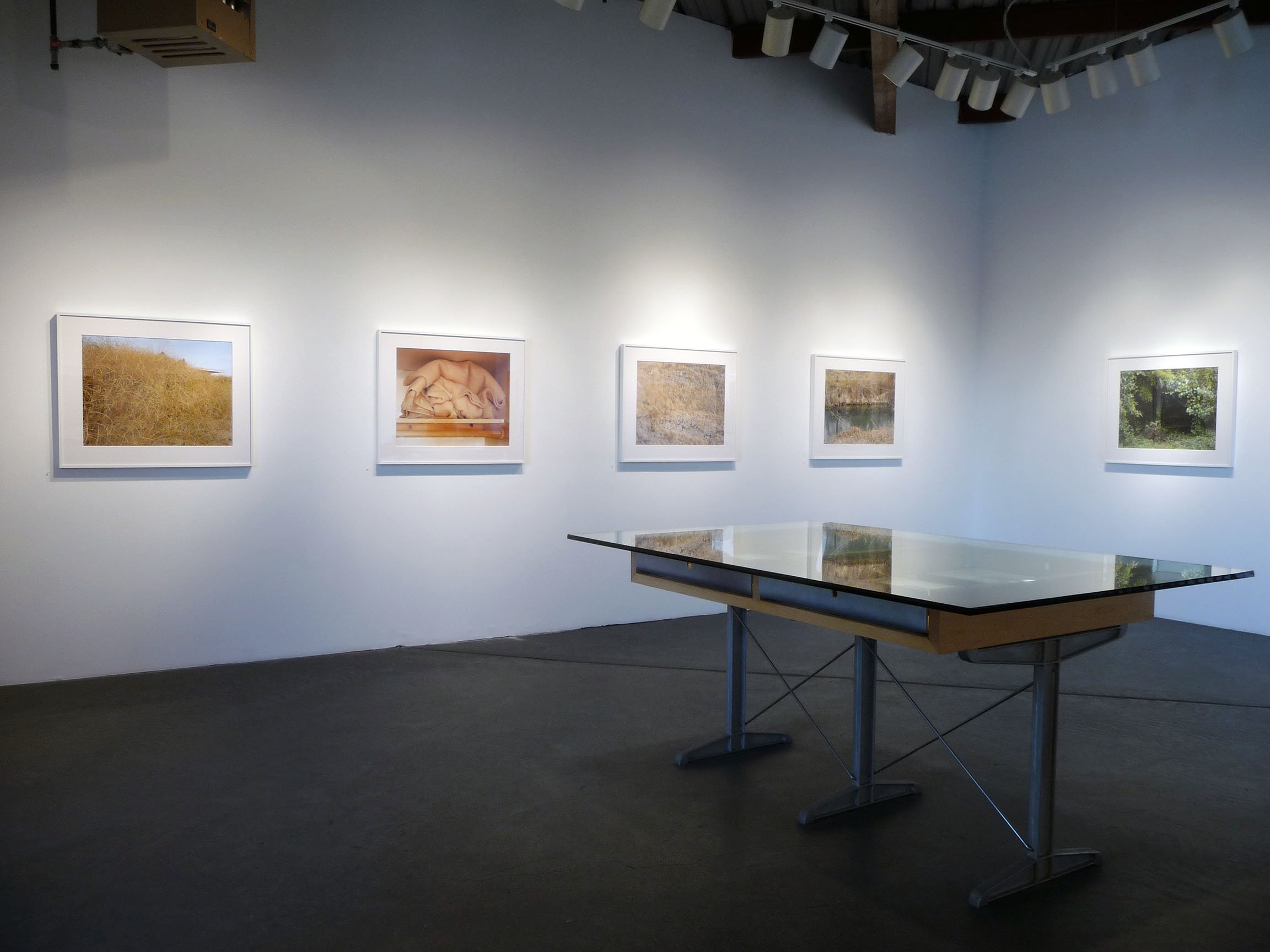
Other Nature 2001-08
The Landscape Game by Nicholas Muellner
When I was about eleven, my best friend got an Intellivision game system. Somewhere in the countless ensuing hours of video tank warfare, he discovered a small space on the right side of the screen where, if he angled his tank properly as it traversed that border, the vehicle would suddenly arrive in a new, adjacent landscape. This terrain resembled the rest of the game, but was devoid of roads, obstacles, mines or other tanks. It was an apparently limitless expanse of video-grass and repeating, arbitrary landscape elements – an occasional tree, a shrub, a small wooded area. This space was not on the map of the game, but it claimed a vast portion of the game’s territory: purposeless, green and undeniably present
The images in Ron Jude’s landscapes are not metaphors, ironic commentaries or ecological critiques. They are not about “landscape” or painting or suburban sprawl. They are not “about”; they are descriptions that pass directly into ontological sensation. Here is how this game works…
The places in these pictures are transitional, and therefore nameless within the standard vocabularies of landscape: between the parking lot and the woods, the train-tracks and the stream, the highway and the field. They exist only as a result of the exigencies and limits of other things and forces. These places are neither physically nor symbolically functional: not “pure” or “ruined” or even “useful”. They are the kinds of places where dead bodies or other illegal garbage might be left, on the theory that, lacking definition, a place is not a destination, and nobody would look where they cannot name. These places are neither discovered nor made; they are simply there.
I am moved, repeatedly, to the negative mode of classification with these images – what they are not – because that is the taxonomy that they demand. The un-noticed or non-canonical landscape has, of course, a canon in American photography – William Eggleston and Stephen Shore jumping most eagerly to mind. These two artists have, in their own modes, made images that redeem the ordinary through a sensuous exultation of representation. The everyday successfully aspires to worthiness. It becomes Landscape.
Jude’s photographs lead us elsewhere. They are unquestionably aesthetic within a photographic vocabulary – the richness and subtlety of tone and light, the twin seductions of fantastic detail and a baroque complexity of elements. How can we not say that these considerations enact that same transformation from namelessness to valued subject? The answer lies in an insistence on non-transcendent presence. Their being is not transformed but thoroughly enumerated in its parts. Jude’s formal structures persistently frustrate the aesthetic closure that transcendence requires. The moment of perception – the light falling on the backs of leaves, the subtle coloration and complex organization of branches – serves only to describe with greater fullness the moment of presence, seen and articulated, not trans-substantiated. We are brought brilliantly into sympathy with this quality of place, and we feel unredeemed but extent: phenomenologically linked to the terrible reduction of these rigorously existential landscapes.
Once my friend had discovered the Intellivision porthole into banal, limitless non-territory, that journey became our primary fascination with the game. I have always assumed that its appeal lay in the transgression – “going” where we weren’t supposed to be. Now I think otherwise. The tank warfare game, like the vanishing prospect of a traditional landscape image, offered an experience of escape. But the uneasy fascination of the adjacent, vacant landscape rested in its unexpected insistence on presence. Suddenly, this primitive attempt at virtuality catapulted us into a grippingly ontological experience. This other landscape’s existence demanded the contemplation of unadorned and unrationalized presence.
Ron Jude’s landscapes do not invite us to escape. They do not narrativize illicit locations or redeem neglected terrain. They describe these places to remind us that being there is all that we are. And that is more than we bargained for in the landscape game.


